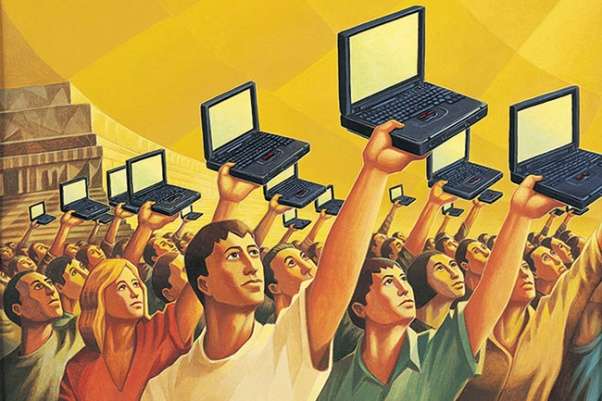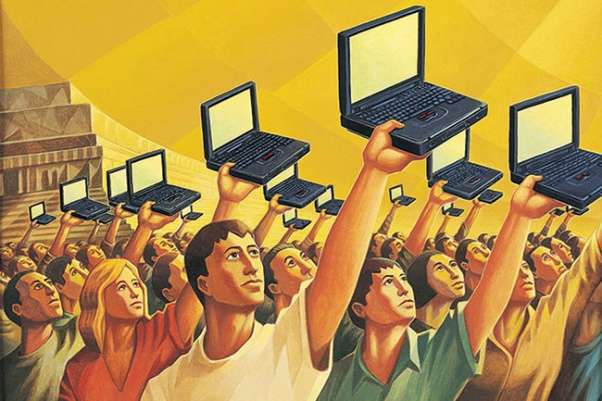This week, The Dig and ScoopCitizen launch an engaged journalism series exploring key aspects of the transition required for Aotearoa to navigate the crises we face, and to thrive as a resilient and democratic nation.
This series seeks to investigate how we can embrace and weave together the best ideas from the ‘global tapestry of alternatives’ that will reshape every aspect of our society over the coming decade.
Just what do we mean when we talk about ideas like ‘Transition’, ‘Democracy’, and ‘Citizenship’ of Aotearoa? Furthermore, how might we upgrade our framework for understanding such concepts to be more suited to the times in which we live?
What do we mean by ‘Transitional’?

We live in a time of transition on many levels. For better or worse, disruption, social change, revolution, and evolution are occurring at an exponentially accelerating rate across our global civilisation. The current era is increasingly being characterised by many leading thinkers as a time of ‘meta-crisis’ – ie multiple systemic crises converging into one meta-crisis affecting every aspect of our complex system simultaneously.
The visionary systems thinker Karl Pogany perhaps understood the nature of transitions better than anyone. He theorised that since human society (like nature) is a ‘complex adaptive system’, its nature is to change through ‘punctuated equilibrium’, ‘chaotic transitions’ and ‘bifurcations’. This means that humanity doesn’t adapt to radically new situations through reasoned debate, but through shocks in the system (usually tied to the biophysical realities of energy use).
When one of these bifurcations occurs, Pogany said, first, the old ‘global system’ disintegrates and the old institutions lose legitimacy, then, a ‘cambrian explosion of alternatives emerges’, carrying the seed forms of the next system, but these alternatives need to fight it out before a new stable global system emerges.
He saw the relative stability of the post-1945 liberal international order as one of these periods of equilibrium. However, crucially, he also pinpointed the 2008 global crisis as triggering the disintegration of that global system of the liberal order and its institutions into the current age of confusion and transition.
Regardless of the exact date, evidence all around us suggests we are very much in the midst of a chaotic period of transition and change. COVID-19 has at the very least, revealed and accelerated this already underway delegitimisation and disintegration of almost every established aspect of the social, political and economic systems of the liberal order.
The key message of Pogany’s work is that we cannot avoid the chaos of this transitional phase any more than we could have stopped World War Two or the French Revolution once they had been set in motion. However, accepting this reality frees us up to positively shape the new stable system that will eventually emerge from this time of great revelation and rearrangement.
We can achieve this by focusing our energy on nurturing those ‘alternative seed forms’ that preserve the best elements of the old system and help accelerate the emergence of a better stable system.
A New Global System

So what would a better system emerging from this great time of transition look like?
The failure of the current world order to avert crisis, suggests that such a new system must feature some very different design elements such as:
- Better meeting the essential core needs of all humans such as food, shelter, community and a sense of purpose, and
- A better understanding of the biophysical realities and limits of the planet.
However, history also tells us that achieving these goals requires a system that is grounded on a bedrock of truly democratic and representative principles and decentralised power and involves all citizens more meaningfully in decisions and actions affecting their essential needs.
Systems that trust that citizens know what is best for themselves generally leads to happier and more prosperous communities and environmental outcomes. Humanity is far more capable of taking part in decisions affecting our lives and surroundings than we are given credit for. A system that understands this truth could unlock vast amounts of latent human potential .
As legendary political philosopher Jurgen Habermas said, political culture does not drop from the skies, but is cultivated on the land or left untended to wither together with the rest of the plants in the garden of democracy. We need to consider how we can best tend the ‘alternative seeds’ of our emergent new political culture and institutions in this time of transition to create the right conditions for an upgraded form of democracy to emerge.
What do we even mean by Democracy?

The 20th century has been called the century of democracy’s triumph due to the rapid spread of liberal democracies across the world under the banner of the liberal international order. However, this ideology of liberal democracy coupled with free-market capitalism championed by the powerful Western nations post-WWII has fundamentally failed to deliver more democratic outcomes for citizens. The harsh realities of the escalating meta-crisis around us (from inequality, to climate change, to COVID-19) suggest this system of governance has not helped us to collectively make sane decisions about managing our resources and activities.
Academic and philosopher John Vervaeke believes this results from the root cause of the meta-crisis – ‘the meaning crisis’ – a lack of shared ‘grand narratives’ and systems to make sense of our complex world. Perhaps nowhere is this meaning crisis more evident than in our lack of a coherent and commonly agreed definition of what we mean when we say democracy.
Former Greek Minister of Finance and academic Yanis Varoufakis has highlighted this problem, stating that our current usage of the word democracy has departed wildly from its original Greek source meaning:
“Cleisthenis’ Demos was imagined as the State itself; as an active community of citizens in which the political sphere, the economy, the State and civil society all co-existed within the Assembly: Democracy was about the Demos getting (physically) together and engaging in a contest of opinions about what ought to be done. The point of the exercise was not to stage a process whereby the rulers consult the people but one in which the people rule.”

Is the idea of democracy as propounded by acolytes of the liberal international order really based on this definition of democracy?
The reality suggests otherwise. The ‘meme’ or ‘accepted narrative’ of democracy has been consistently used by powerful Western nations to justify inherently anti-democratic activities in order to maintain their imperial domination and exploitation of territories and resources.
Such anti-democratic activities include the commission of atrocities, convenient blindness to corruption and political violence, and a vigorous suppression of free speech, and grassroots political cultures. This was already a reality of political life in the global south, the communist bloc, or any nation that defied wholesale absorption into either of these imperial blocs post-1945. However, such anti-democratic and non-representative systems have become an increasingly normal feature of political life in the West in recent years.
These inherent hypocrisies are eroding faith in the ‘democratic’ ideals of this liberal world order and leading to its delegitimisation and collapse. Many Citizens globally are asking the valid question, of how a system so devoid of the basic tenets of representation, equality, participation, and accountability can be considered a democratic one?
It is highly surprising in this context, that general trust in liberal democratic institutions and representatives is in decline across the world. However, what is concerning is the fact that the main outcome of this delegitimisation has been the resurgence of fundamentally anti-democratic and authoritarian far-right populist movements across the world.










 India
India United States of America
United States of America New Zealand
New Zealand